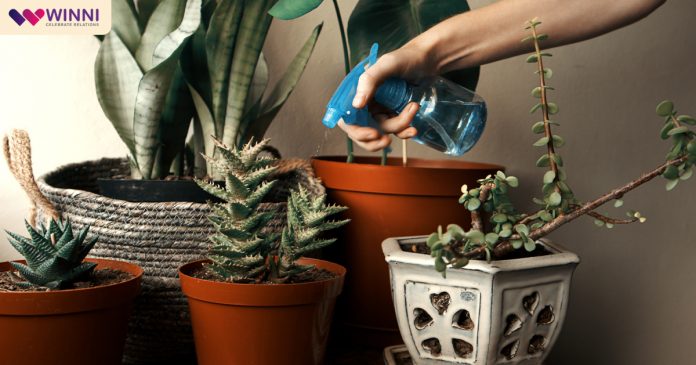We are all tired from the heat wave peaking in the summer. Now, it has become more important than ever to keep our indoor plants healthy. These green companions not only help in lowering the temperature, but also bring positivity, fresh air, prosperity, and add aesthetics to our living spaces. However, dead or weak plants can’t serve their purpose and may even bring multiple disadvantages. So, to keep your plants healthy, you need the best indoor plant fertilisers that can maintain their vibrancy and healthiness.
What Are Fertilisers?
In simple terms, fertilisers are essentially plant food, providing essential nutrients that help plants grow strong and healthy. Just like how we take supplements to fill nutritional gaps in our diets, plants need the best fertilisers to get the nutrients they might not be getting from the soil.
They contain a mix of three key nutrients: Nitrogen (N), which helps plants grow lush, green leaves, phosphorus (P), which is crucial for root development and flowering, and potassium (K), which strengthens plants, helping them resist diseases.

Top Indoor Plant Fertilisers for Healthy Plants
Banana Peel
Banana peels are an excellent natural fertiliser for indoor plants. It is a rich source of potassium (K), promoting root development, flowering, and overall plant health. Additionally, banana peels contain other crucial plant growth elements, including nitrogen, phosphorus, calcium, and magnesium.
How To Use Banana Peel As Fertiliser?
- Chop the banana peel into small pieces and bury it in the soil, ensuring they decompose slowly.
- Alternatively, soak banana peels in water and use this nutrient-rich “banana peel tea” to water plants.

Coffee Grounds
Coffee grounds are rich in nitrogen, promoting strong green foliage. Moreover, you can also trace magnesium, calcium, potassium, and iron in coffee grounds which enhance soil health and fertility. If used right, they improve soil structure, increase water retention, and attract earthworms.
How To Use Coffee Grounds As Fertiliser?
- Take a teaspoon of coffee grounds and let it rest in a gallon of water for a few nights. Afterwards, strain the mixture and use it to water your houseplants.

Compost Tea
Compost tea is an excellent organic fertiliser for indoor plants loaded with beneficial microorganisms and nutrients. Plants can easily absorb this tea which boosts plant health and soil fertility. Besides, compost tea can improve soil structure, increase moisture retention, and help protect plants against diseases.
How To Use Compost Tea As Fertiliser?
- Compost tea is made by steeping compost in water. Simply make the tea and spray it directly on the leaves or pour it into the soil.

Eggshells
Eggshells serve as one of the best natural fertilisers for indoor plants. They are a source of calcium, magnesium, potassium, and phosphorus, contributing to a balanced nutrient profile. As a matter of fact, crushed eggshells decompose slowly, releasing calcium into the soil, which is vital for cell wall development.
How To Use Eggshells As Fertiliser?
- Finely crush eggshells and mix them into the soil properly.
- Secondly, you can also steep the crushed eggshells in water to create a “shell tea” and use it to water your indoor plants.
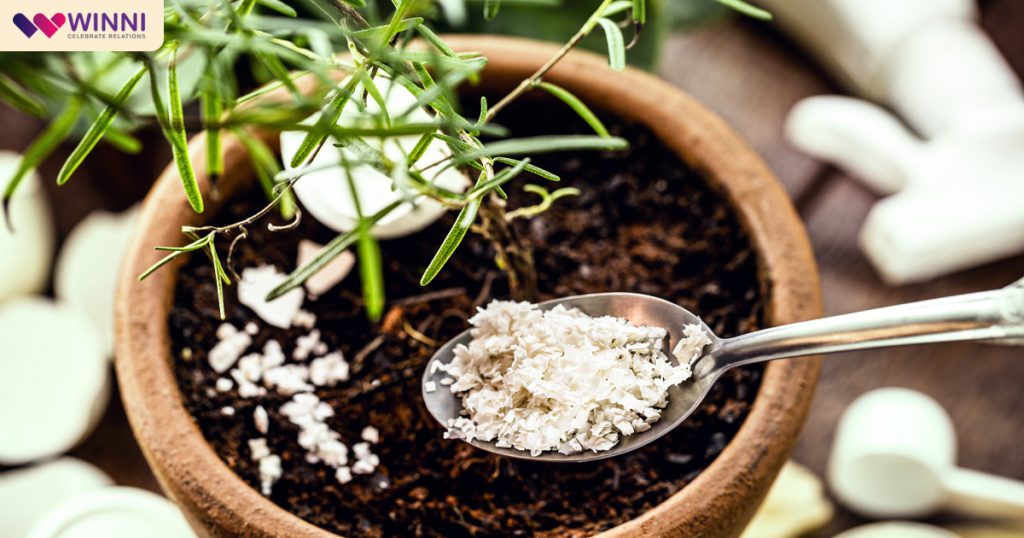
Cooking Water
Cooking water from boiling vegetables can be an eco-friendly fertilizer for indoor plants. This water absorbs vitamins and minerals from the vegetable during the cooking process, such as calcium, potassium, phosphorus, and magnesium. When used as a fertilizer, it promotes healthy growth and vibrant foliage.
How To Use Cooking Water As Fertiliser?
- Just boil your vegetables and strain the water. When it comes to room temperature, use it as a spray or pour it directly into the soil. However, make sure you use UNSALTED cooking water as salt can cause dehydration and nutrient imbalances to plants.
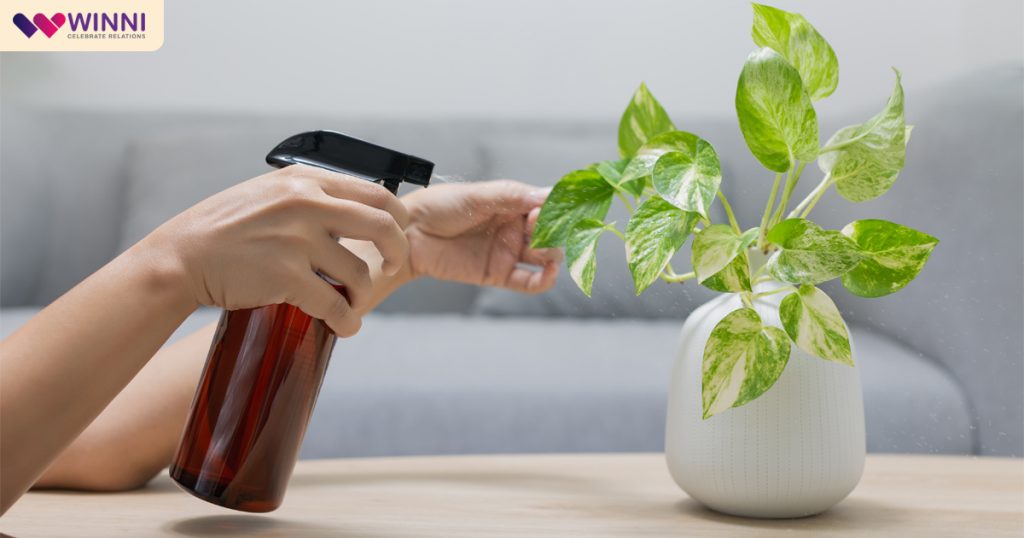
Green Tea
Green tea can be an effective natural indoor plant fertiliser, providing a range of beneficial nutrients and organic compounds. Diluted green tea can enhance soil quality by adding nitrogen Also, the tannins and organic acids in green tea acidify the soil, benefiting indoor plants like ferns and begonias.
How To Use Green Tea As Fertiliser?
- Sprinkle used tea leaves around the base of plants. Besides, you can also dilute brewed green tea with water and apply it directly to the soil.
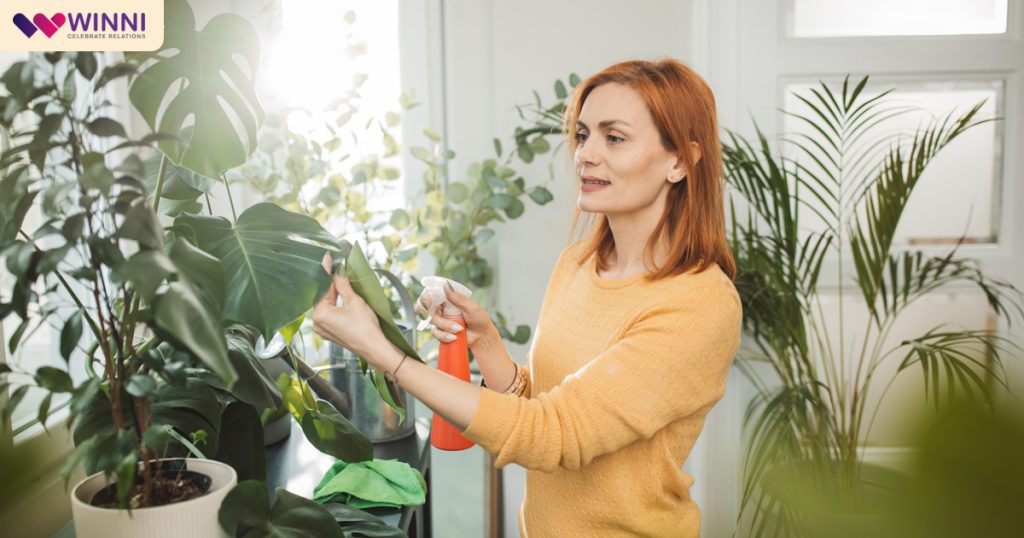
DISADVANTAGES of Keeping Dead or Weak Plants
- Negative Energy: While strong plants spread positive energy, dead or dying plants can create a sense of neglect and negative energy in your home.
- Poor Air Quality: Just like the human body can not function properly when it is weak, weak plants also become less effective at purifying the air.
- Pests and Diseases: Even if there’s only one sick plant in your garden, it can spread diseases to other healthy plants by attracting pests.
- Aesthetics: Unhealthy plants detract from the beauty of your home and can make it look unkempt.
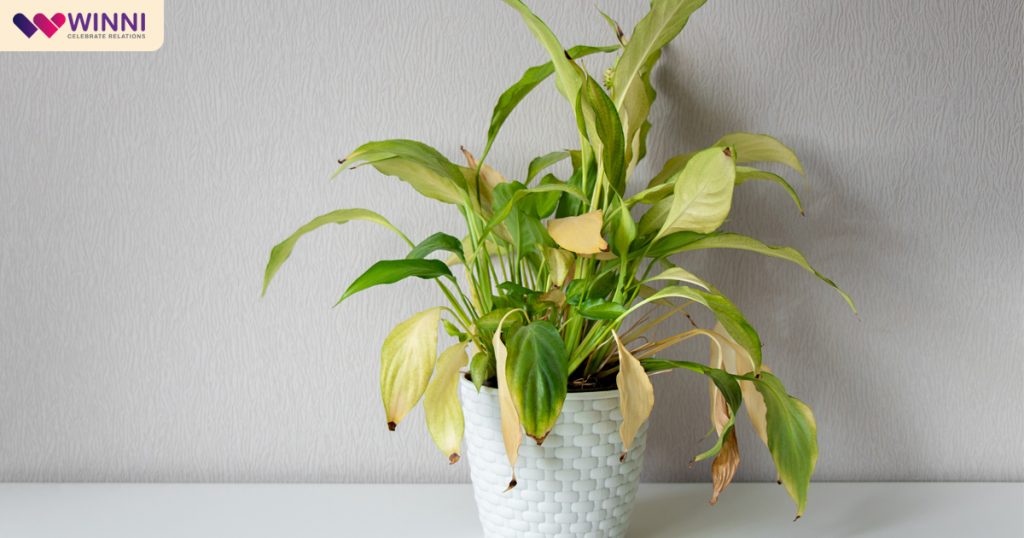
Why It’s CRUCIAL to Keep Your Plants Healthy?
The heat wave of the summer has shown us how critical it is to create a greener & healthier environment. Be it indoors or outdoors, a comfortable environment comes when the greens are lush and strong. Here are some other reasons why you need to keep them in top shape:
- Air Purification: Healthy plants absorb toxins and release fresh oxygen, improving the overall air quality in your home.
- Positive Energy: Vibrant plants are known to enhance mood and reduce stress, bringing positivity and calmness to your space.
- Prosperity and Good Luck: Healthy plants ease the tension in the space, resulting in more productivity and serenity, bringing prosperity and good luck.
- Aesthetics: We all know how beautiful, lush plants enhance the decor of any room, making your home more inviting.
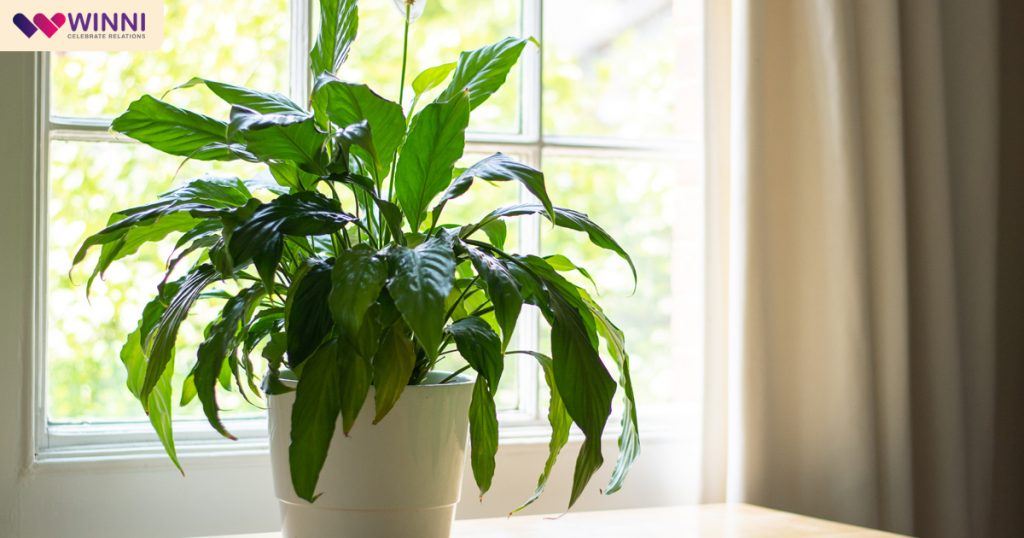
Conclusion
A little care goes a long way in keeping your garden thriving and temperate management. Keeping your plants healthy with the right indoor plant fertilisers is essential, especially during extreme weather conditions like rising temperatures. By using the right fertilisers for indoor plants, you can ensure your plants remain vibrant and strong.

